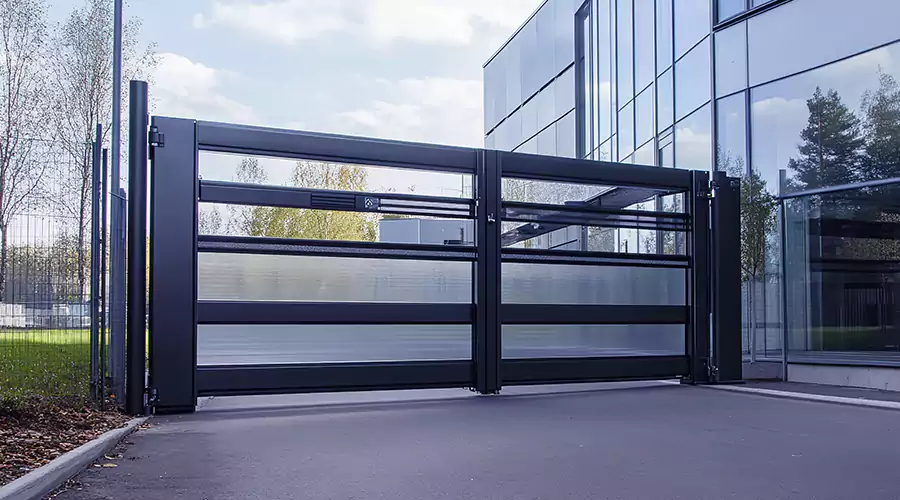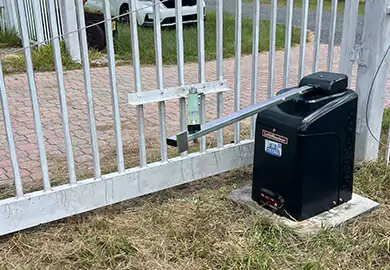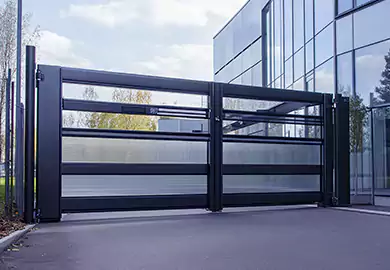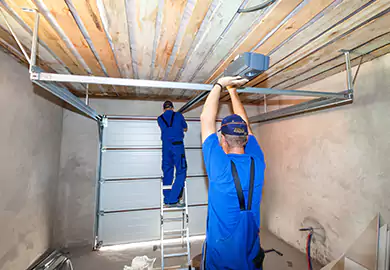
20 Aug, 2025
“It needs reprogrammed, or the low limit’s off. The chains are disconnected right now as well.”

Answerd by:
Miami, FL
Commercial gates work harder than residential ones — dozens or even hundreds of cycles per day — so when something goes wrong, it can quickly disrupt business operations and security. From what you’ve described, there are three major issues happening with your gate:
Reprogramming or Limit Switch Malfunction
The low limit on an automatic gate tells it where to stop when closing. If it’s off, the gate may not close all the way, or it may “slam” past where it should. Reprogramming the control board or resetting the limit switches usually fixes this.
DIY Insight: Most gate operators have manual limit switch adjustments. But be cautious — one wrong setting can cause the gate to bind or over-travel, which stresses the motor.
Disconnected Chains
Chains are the lifeline of a sliding commercial gate. If they’re loose or disconnected, the motor can’t pull the gate at all. This could be from wear, lack of tension adjustment, or even an obstruction that caused the chain to jump off its sprocket.
DIY Insight: Inspect the chain for breaks, rust, or missing links. If it just slipped off, it can sometimes be reinstalled and tensioned. But if the chain is stretched, replacement is the long-term solution.
Commercial-Grade Stress
Since this is at a Tractor Supply (high-traffic commercial property), the wear and tear on the opener and chain drive system is accelerated. Unlike a residential gate, this one needs heavy-duty commercial parts and frequent service intervals.
Pro Tip: Always use industrial-rated chains, sprockets, and motors. Residential-grade replacements won’t last in a commercial setting.
The Fix, Step by Step
- Reprogram/Reset: Technician will recalibrate the low and high limits in the opener’s logic board.
- Chain Repair/Replacement: The loose chain will be reset onto the sprocket and tensioned properly. If stretched or rusted, it will be swapped out.
- Full Safety & Performance Test: Sensors, limit switches, and emergency stop functions should all be tested to make sure the gate complies with commercial safety codes.
For details on how we handle these kinds of issues, see our Electric Gate Repair services.
Expert Recommendation
Since this is a recurring issue (limits off, chain disconnected), I’d strongly recommend scheduling preventive maintenance every 3–6 months. Commercial gates are like fleet vehicles — they run daily, and minor neglect can lead to costly downtime. A service plan is much cheaper than an emergency repair at the wrong time.
FAQs About Commercial Electric Gates
Chains stretch naturally over time with use. If they’re not re-tensioned, they can slip off the sprocket. Heavy traffic accelerates this.
If the gate doesn’t stop in the right place or refuses to fully open/close, your limit settings are likely off.
Yes, but it’s tricky. Each opener brand has its own procedure. If set incorrectly, the gate can slam, stall, or damage the motor.
Every 3–6 months for high-traffic gates. Chains, motors, and electronics all need adjustment and lubrication.
The gate will not move at all. A broken chain must be replaced immediately, preferably with a heavy-duty commercial-grade chain.
Expect $250–$600 depending on parts. Full chain replacement with commercial-grade components is on the higher end.
Usually yes — you can manually slide the gate shut and use a padlock or secondary locking mechanism until repairs are complete.
Yes. OSHA and UL-325 safety standards require sensors, stop functions, and proper limit settings to prevent injury or liability.
If your commercial gate isn’t moving, or the chain is off, it’s best to book a technician immediately. You can Schedule a Free Estimate and have a professional recalibrate and repair it on-site




